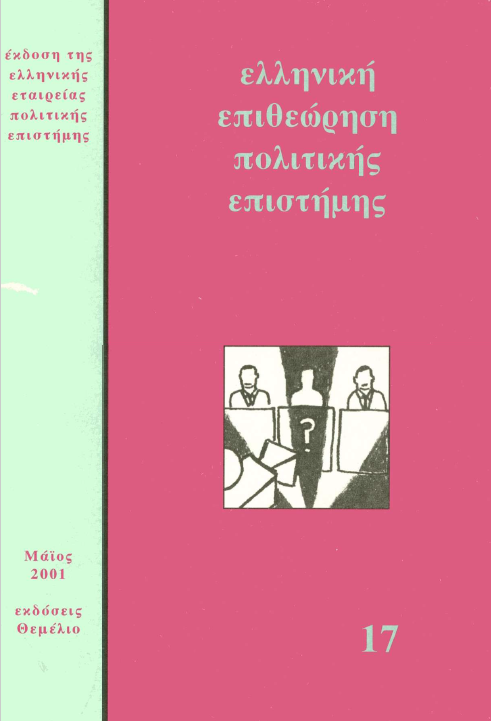"This is a new way to make my voice heard": the gender dimensions of collective and private action in Athens during the crisis
Abstract
This article documents the way the residents of Athens mobilized and expressed their social reaction in light of the economic crisis, with the aspect of gender as the focal point of analysis. By using empirical data from a 2012 wider Athens area survey conducted by the National Centre of Social Research through face-to-face interviews we explore the varying forms of political attitudes and practices of urban residents in the context of the crisis. Our analysis snowed gender not to be a statistically significant indicator, since in both private and collective forms of action, women and men adopted similar practices, with the exception of formal political participation where men scored higher. In addition we explored the motives behind the actions adopted, and the meanings attributed to them by women and men.
Article Details
- How to Cite
-
Κακεπάκη Μ. (2017). "This is a new way to make my voice heard": the gender dimensions of collective and private action in Athens during the crisis. Greek Political Science Review, 41, 35–59. https://doi.org/10.12681/hpsa.14535
- Section
- Special Section

This work is licensed under a Creative Commons Attribution-NonCommercial-ShareAlike 4.0 International License.
Authors who publish with this journal agree to the following terms:
Authors retain copyright and grant the journal right of first publication with the work simultaneously licensed under a Creative Commons Attribution licence that allows others to share the work with an acknowledgement of the work's authorship and initial publication in this journal.
Authors are able to enter into separate, additional contractual arrangements for the non-exclusive distribution of the journal's published version of the work (e.g. post it to an institutional repository or publish it in a book), with an acknowledgement of its initial publication in this journal.
Authors are permitted and encouraged to post their work online (preferably in institutional repositories or on their website) prior to and during the submission process, as it can lead to productive exchanges, as well as earlier and greater citation of published work (See The Effect of Open Access).





